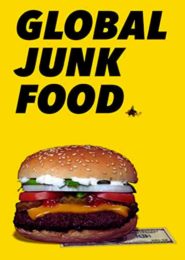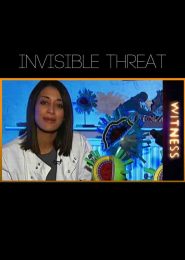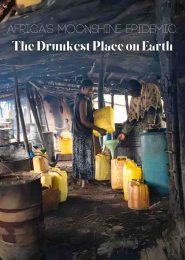Soyalism (2018)
In the Soyalism documentary, directors Stefano Liberti and Enrico Parenti take viewers on a compelling journey through the intricate web of the global food industry. Released in 2018, this film sheds light on how China and Western agribusiness are reshaping the world’s grain and meat production, with profound consequences for small farmers and the environment.
Here are the key insights from this thought-provoking documentary:
- The Rise of Soybeans:
- The film follows the entire chain of pork production, tracing it from the United States to Brazil, Mozambique, and ultimately, China.
- Central to this chain is the soybean—a critical feed source for livestock. Enormous soybean monocultures have emerged in the Brazilian rainforest, driven by global demand.
- Small Farmers vs. Agribusiness Giants:
- Soyalism highlights the stark contrast between small-scale farmers and powerful agribusiness corporations.
- While small farmers struggle to survive, multinational companies wield immense influence, often pushing them out of business.
- Environmental Plunder:
- The pursuit of profit comes at a cost. The film exposes the environmental impact of large-scale agriculture.
- Lagoons of hog waste threaten water supplies in North Carolina, while deforestation in Brazil’s rainforest accelerates due to soybean cultivation.
- China’s Growing Appetite:
- China’s booming middle class demands more meat. As a result, the country imports vast quantities of soybeans to feed its livestock.
- The film raises questions about sustainability and the long-term consequences of this voracious appetite.
- Debunking Myths:
- Soyalism challenges popular narratives. It questions whether small farmers are truly the victims or if their practices contribute to environmental degradation.
- The film’s portrayal of pork feed and deforestation sparks debate, emphasizing the need for evidence-based discussions.
- The Global Food System:
- Beyond individual stories, the documentary underscores systemic issues. It calls for transparency, ethical practices, and equitable distribution.
- How can we balance food security, economic viability, and environmental stewardship?
- A Call to Action:
- Soyalism isn’t just a film—it’s a call to action. It urges viewers to consider their food choices, advocate for sustainable practices, and support small farmers.
- By understanding the complexities of our food system, we can shape a more just and resilient future.
In a world where food production intersects with power dynamics, Soyalism invites us to explore the hidden forces behind our meals and make informed decisions for a healthier planet.




